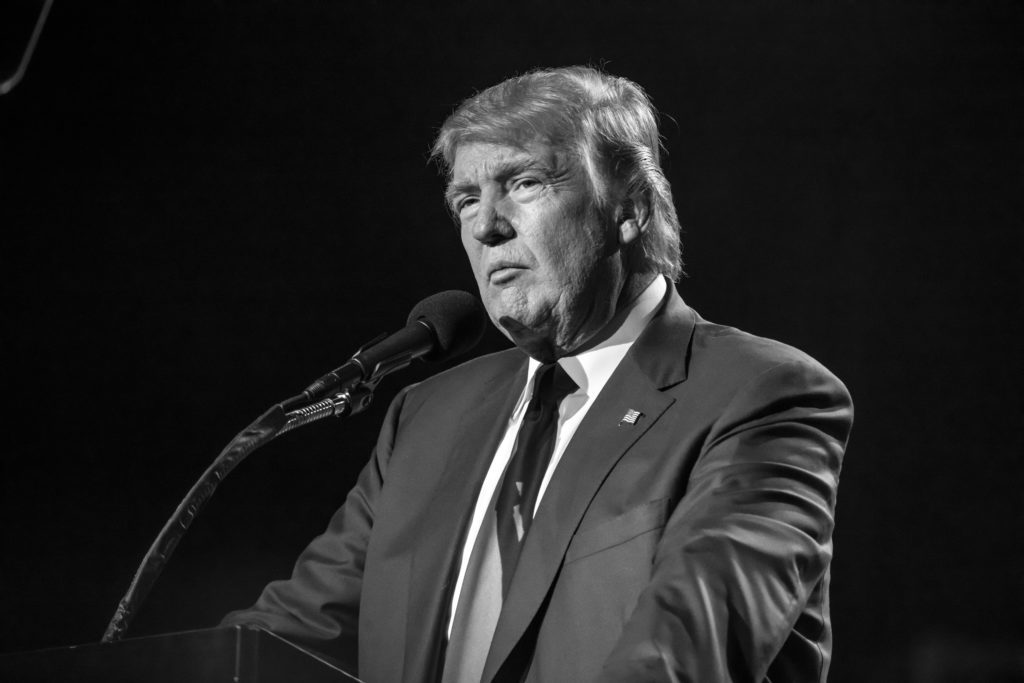WHAT A DISASTER

This week, we will likely see the transfer of the Articles of Impeachment from the House to the Senate and the beginning of the next phase of the impeachment process. Meanwhile, Donald Trump is going to continue conducting U.S. foreign policy in a breathtakingly haphazard fashion and with no discernible long-term strategy. There is, however, one unifying feature underlying virtually all of Trump’s policy decisions, both foreign and domestic: they are purely transactional and venal. And the former real estate mogul is not exactly shy about admitting this in public.
When the Iraqi parliament voted to ask all foreign troops to leave the country in the wake of the assassination of Qassem Soleimani on Iraqi soil by the U.S. military, Donald Trump did not speak up to talk about the importance of a continued presence of American and allied troops in the fight against Daesh. Rather, he complained about an investment that could be lost in case the U.S. should have to leave Iraq: “We have a very extraordinarily expensive air base that’s there. It cost billions of dollars to build. … We’re not leaving unless they pay us back for it.” Then he proceeded to threaten the country with sanctions in case the Iraqi caretaker Prime Minister decides to follow the request made by the parliament.
During an interview on Fox News last Friday, the man who had campaigned on the promise of “bringing the troops back home” then talked about sending more U.S. soldiers to Saudi Arabia. The reason? “They’re paying us. They’ve already deposited $1 billion in the bank.” This rationale, given by the Commander-in-Chief for the deployment of young Americans on foreign soil, did not go down well with the general public, regardless of political affiliation. “He sells troops,” tweeted Justin Amash (I-Mich.) who until recently was a Republican. And actor and political writer Brian Tyler Cohen commented, saying that “The US military is now a mercenary army for the country that sent the majority of hijackers to do 9/11.” Also, Donald Trump’s revelation that the Kingdom of Saudi Arabia had already deposited $1 billion “in the bank” raised a lot of questions about which bank exactly he was talking about and whether this was a reference to the U.S. Treasury (where the money should go) or Mr. Trump’s deep pockets (where the money should most definitely not go).
In the same interview, Trump also bragged to Laura Ingraham about having badgered South Korea into paying for the presence of U.S. troops in a style that is clearly reminiscent of a New York wise guy doing some good, old-fashioned racketeering: “South Korea gave us $500 million … I said, ‘You gotta help us along. We have 32,000 soldiers in South Korea protecting you from North Korea. You’ve gotta pay.’” This clearly shows that he still has not understood the vital importance of an American presence in the region – a lesson his military and strategic advisers have been trying to instill into him from the beginning of his presidency, obviously without success.
In a speech he gave in 1910, Franklin D. Roosevelt said the following words: “I will tell you who is the real menace in American political life—not the king; he does not exist and never will; not the dictator, but the boss; the man who does by manipulation, by intrigue, by alliance with crooked judges, by crooked business men, by the assessment of judges, in every way that is contrary to the principles of good citizenship, the man who by doing all that gets enormous political power and exercises it as he chooses, that man is a menace.”
Donald J. Trump clearly is the menace FDR was envisioning in his speech. He needs to be removed from the presidency, either through impeachment or at the ballot box.

